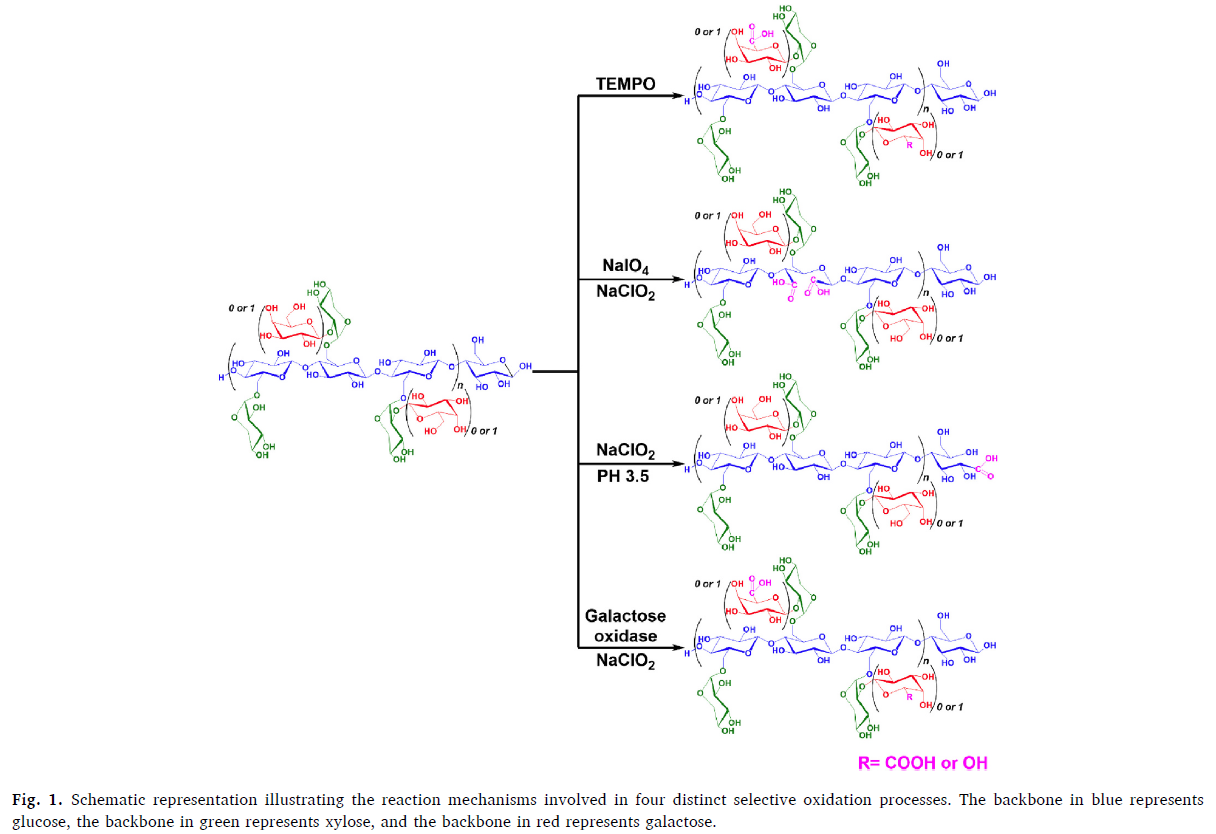Prof. Liu and Prof. Sun's group Published article on International Journal of Biological Macromolecules with the title of "Exploring the potential of selective oxidation in bioconjugation of collagen with xyloglucan carboxylates "
A B S T R A C T
Xyloglucan (XG), as a natural biopolymer, possesses a sound biocompatibility and an impressive biodegradability, which are usually featured with abundant hydroxyl groups available for the bioconjugation with a bioactive moiety, suggesting a promising or unique value possibly applied in the field of biomedicine. In this study, XG was extracted from Tamarind seeds and subjected to four regioselective oxidation methods to introduce carboxyl groups onto the XG molecules for a bioconjugation with collagen. Galactose oxidase and reducing end aldehyde group oxidation mainly resulted in a low carboxylate content at ~0.34 mmol/g, whereas the primary and secondary hydroxyl group oxidations would lead to a high carboxyl content at ~0.84 mmol/g. The number-average molar mass (Mn) and weight-average molar mass (Mw) of XG were 8.8 × 105 g/mol and 1.1 × 106 g/mol, respectively. The oxidized XGs were then subjected to a further biofunctionalization with the collagen through EDC/NHS coupling, which exhibited a degree of conjugation rate, ranged from 50 % to 72 %. The collagen-conjugated at the C6 position of XGs exhibited the highest cell viability recorded at 168 % in promoting cell growth and proliferation after 72 h of culture, surpassing that of pure collagen recorded at 138 %, which may indeed suggest a promising value in a biomedical application.

https://doi.org/10.1016/j.ijbiomac.2024.131771